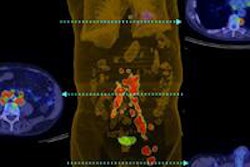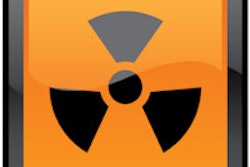PET/CT improves staging accuracy and intrathoracic disease identification, which can lead to improved clinical outcomes for patients with limited-stage small-cell lung cancer (LS-SCLC), according to a study published in the July issue of the Journal of Thoracic Oncology.
Researchers led by Dr. Eric Xanthopoulos, a radiation oncology intern at the University of Pennsylvania, found that pretreatment PET staging of limited-stage small-cell lung cancer was associated with improved survival.
In the study, 54 LS-SCLC patients were treated with concurrent chemoradiation between January 2002 and August 2010. Of this group, 40 received PET scans, and all 54 patients underwent CT and MRI, according to the authors.
PET-staged patients had a three-year overall survival rate of 47%, compared with 19% for those not staged with PET. Median overall survival from diagnosis in PET-staged patients was 32 months, compared with 17 months for patients staged without PET (JTO, Vol. 8:7, pp. 899-905).
"LS-SCLC patients staged with PET exhibited improved disease control and survival when compared with non-PET-staged LS-SCLC patients," the authors concluded. "Improved staging accuracy and better identification of intrathoracic disease may explain these findings, underscoring the value of PET/CT in these patients."




















